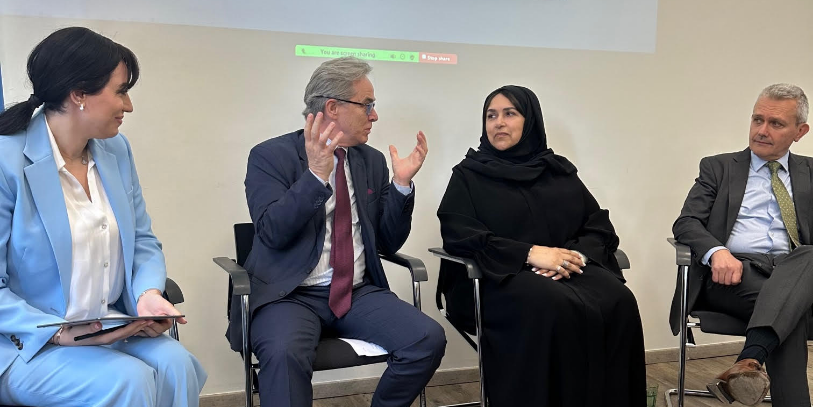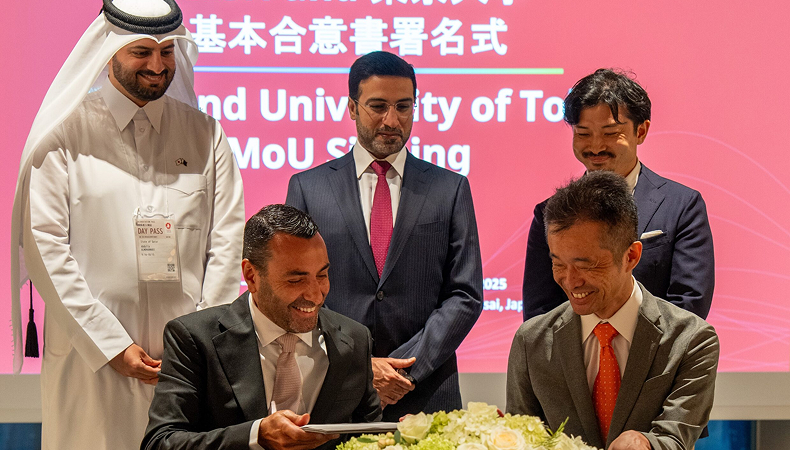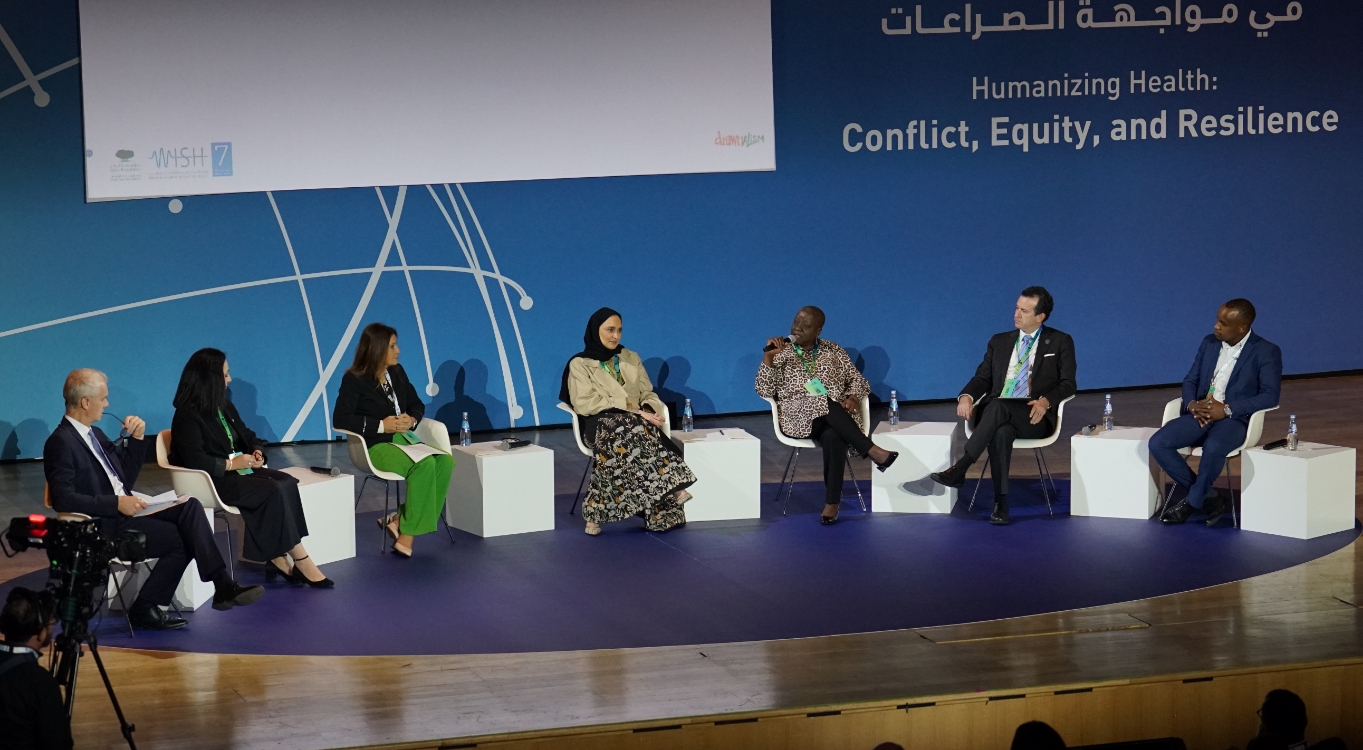WISH event draws attention to massive rise in attacks on health during armed conflict

Event co-hosted with IFMSA in Geneva ahead of publication of WISH-WHO report
28 May 2024. Geneva, Switzerland – At an event hosted by the World Innovation Summit for Health (WISH), an initiative of Qatar Foundation, and the International Federation of Medical Student Associations (IFMSA), on the sidelines of the 77th World Health Assembly in Geneva, Switzerland, global experts have drawn attention to the massive rise in attacks on health during armed conflict, with numbers almost doubling in 2023.
The session shed light on the targeting of health systems during armed conflict, exploring the challenges faced, assessing the impact, and discussing potential solutions to safeguard health in times of crisis.
An audience mostly made up of medical students heard of the importance of preserving and protecting health services, and the people delivering them, at a systematic level. As well as hearing from speakers from WISH, the World Health Organization, and Cambridge University, video messages were played from medical students in Gaza and Sudan outlining the dire situation faced by their health systems.
“To date we have documented more than 900 attacks on health provision in Gaza and the West Bank since 7 October last year. In Sudan there’s hardly a health facility left that hasn’t been impacted”, said Rick Brennan, Regional Emergencies Director, WHO Eastern Mediterranean Regional Office, speaking at the session, titled Targeting of Health Systems During Armed Conflict: Challenges, Impacts, and Solutions. “I don’t know an individual or organization that’s ever been specifically held accountable for an attack on healthcare. We need more detailed investigations, we need to document what’s happening, and we need to put it into the hands of those who can take action.”
Later this year, WISH, in collaboration with the WHO, will publish a report on health and armed conflict. The report will be presented at WISH 2024, which will take place on 13-14 November at the Qatar National Convention Centre, Doha.
Armed conflicts have dire consequences on health systems, leading to devastating impacts on populations, health infrastructure, and the provision of essential services. Deliberate attacks against health facilities, workers, and patients are not only violations of international humanitarian law, but also exacerbate the already precarious health situation in conflict-affected areas.
At the event, Jim Campbell, Director, Health Workforce at the WHO, noted: “Member States and Ministers of Health gathered this week at the World Health Assembly to recognize the need to protect health systems, including the workforce, whether it’s against public health emergencies, outbreaks, natural disasters, violence and harassment of personnel, or attacks in armed conflict. The current evidence is showing that attacks on health are increasing.
“The Safeguarding Health in Conflict 2023 Report found more than 2500 incidents in 2023 alone, including 685 cases where health workers – doctors, nurses, and ambulance drivers – were arrested or kidnapped, and 487 instances where they had been killed,” he continued. “This is almost double the number in 2022. This clearly shows the irrefutable obligation to uphold international humanitarian law. Violence against health workers has reached epidemic proportions.”
Sultana Afdhal, Chief Executive Officer, WISH, said: “Attacks on health are unacceptable. As a global platform for tackling the most challenging issues of our time it is vital that we lend our voice to those calling for action. Working alongside IFMSA to co-host this session in Geneva has given us the chance to mobilize tomorrow’s health leaders.
“As the health and care workforce of the future, they have a powerful voice to hold decision makers to account,” she added. “This topic requires significant attention at this time, so having the opportunity to hear from experts in the field of health and care, health service delivery, and health in conflict settings – as well as the voices of current and future health professionals – was extremely valuable.” Saleyha Ahsan, PhD Candidate, Health System Design Group, Cambridge University – and one of the authors of the upcoming WISH report – said: “Current armed conflicts around the globe have placed a focus on attacks on health like never before. The consequences of these attacks on health are the subject of international awareness. Our research will look at what is currently in place to both monitor these attacks and their impact, and to legally protect health during armed conflict.”
More Press Releases

QF’s WISH and University of Tokyo Sign Landmark Agreement to Advance Global Health Policy at Osaka Expo
Read More
QF’s WISH Announces This Year’s Winning Innovators at 2024 Summit
Read More
World Health Leaders Outline Bold New Strategies and Innovations to Eliminate TB Amongst Refugees and Migrants at QF’s WISH 2024
Read More